
Sugar cravings – we’ve all experienced them. Whether it’s the irresistible allure of a chocolate bar or the comforting embrace of a sugary beverage, cravings can often feel like a battle between willpower and indulgence. Sugar had ruled my entire life. Many people reading this know the feeling. It seems as though every chapter of my life—every good time and every not-so-good time—has some attachment to sugar. I had to make an important decision for my health: to live a sugar-free lifestyle. After many years of experimentation, trying to prove to myself that I could manage my sugar addiction and more, I finally decided to embrace a sugar-free lifestyle.
One of the most shocking things I’ve learned since we started eating low sugar is that even if you don’t eat any dessert, you’re still consuming tons of sugar every single day!
You can think you’re eating healthy foods and still be consuming more sugar than recommended because sugar gets added to almost every food we eat. I want to open your eyes a little bit to the sugar that is hiding in your food! We’ll look at some foods to beware of if you want to eat less sugar.

Understanding the root causes of sugar cravings and adopting strategies to manage them can empower you on your journey towards a healthier relationship with food. In this blog post, we’ll delve into the science behind sugar cravings and explore effective ways to conquer them.
Table of Contents
ToggleThe Science of Sugar Cravings
- Blood Sugar Rollercoaster: Breaking the Cycle
Sugar cravings are often linked to fluctuations in blood sugar levels. Consuming refined sugars leads to a rapid spike in blood sugar, followed by a crash, leaving you reaching for another sugary pick-me-up. Opt for complex carbohydrates like whole grains, fruits, and vegetables to provide a steadier release of energy and reduce the rollercoaster effect.
- Emotional Triggers: Unravelling the Connection
Emotional factors play a significant role in sugar cravings. Stress, boredom, and emotional ups and downs can trigger a desire for sweet treats as a form of comfort. Recognizing and addressing emotional triggers through mindfulness, meditation, or engaging in activities you enjoy can help break the cycle of emotional eating.

Sugar cravings are actually driven by your brain’s need for a “reward” not your body’s need for food.
Strategies To Stop Sugar Cravings
1. Focus on the Fab Four
The Fab Four – Protein, Fats, Fiber, and Greens – can significantly impact your overall well-being. Incorporating these essential nutrients into your diet is not just about filling your plate; it’s about supporting your body’s energy, hormone production, microbiome health, and maintaining a healthy body composition.
Here’s how each component contributes to your well-being.
- Protein: Protein is more than just a muscle-building nutrient. It triggers the release of cholecystokinin (CCK), commonly known as the “satiety hormone,” which signals feelings of fullness.
- Fats: Healthy fats play a crucial role in hormone production and overall health. They, too, contribute to the release of CCK, promoting satiety. Additionally, fats support glucagon-like peptide-1 (GLP-1) production, aiding in the regulation of blood sugar levels. Healthy fats in your diet can provide a sustained source of energy.
- Fiber: Fiber is your digestive system’s best friend. It not only promotes healthy digestion but also influences the release of appetite-regulating hormones.
- Greens: Leafy green vegetables are nutritional powerhouses. Alongside protein, they boost GLP-1 production, contributing to blood sugar regulation.
By focusing on the Fab Four, you’re not just making choices about what to eat; you’re making choices that can positively impact your body’s hormonal balance, reduce appetite, and provide the sustained energy needed for your daily activities.
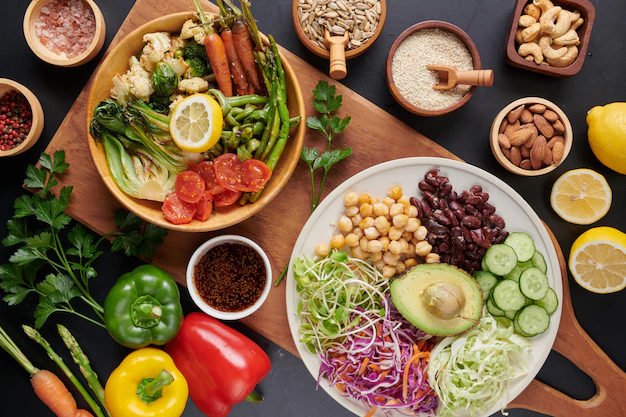
- Reduce the consumption of Artificial Sweeteners
Reducing the intake of artificial sweeteners is a crucial step in promoting overall well-being and managing cravings effectively.
It’s vital to understand that the taste, whether artificial or real, does not contribute to reducing future cravings.
Cravings are not signals of hunger; they are messages from the brain, often driven by a desire for something that triggers the release of dopamine in the reward system.
Comparing it to an addiction, it becomes clear that just as someone trying to quit smoking wouldn’t reach for a cigarette, those aiming to curb sugar intake should reconsider artificial sweeteners.
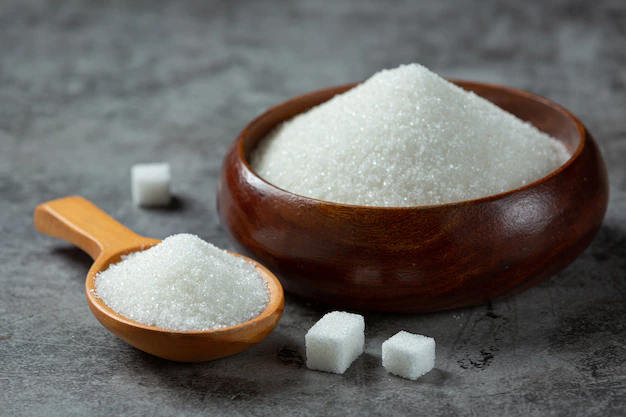
- Always have a Healthy Snack on hand
Hunger is one of the primary reasons for experiencing cravings, particularly during moments of extreme hunger when there’s a higher likelihood of seeking a quick energy boost.
Instead of reaching for sugary treats when hunger strikes, opt for nutritious alternatives such as fresh fruit, nuts, yogurt, apple slices with almond butter, or hummus with carrot sticks.
Avoiding prolonged periods of hunger and keeping these nutritious snacks readily available can assist in making healthier choices and preventing impulsive sugar indulgences.
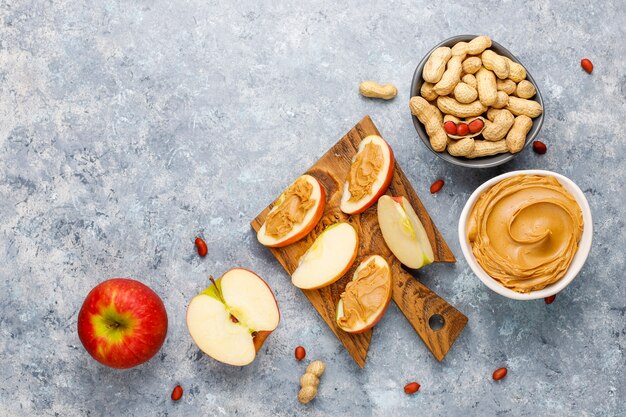
- Avoid Highly Processed Foods
Highly processed foods are often loaded with hidden sugars that can contribute to intense cravings, including various dips, fruit yogurts, ‘healthy’ labelled bread, energy bars, and all kinds of packed foods with numerous ingredients.
They all contain fast digestive sugars and carbs, that won’t help you keep full.
Replacing processed food with whole, unprocessed foods provides your body with essential nutrients and helps stabilize blood sugar levels.
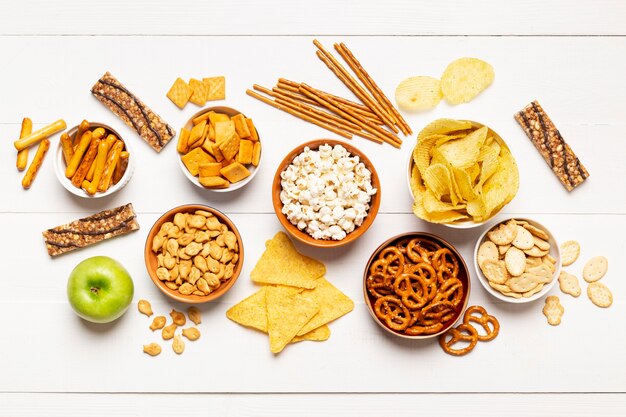
- Be More Active
A sedentary lifestyle can actually make you more tired and lethargic, which leads people to look for quick energy sources.
Regular physical activity not only has numerous health benefits but can also help regulate blood sugar levels and reduce sugar cravings.
Engaging in activities you enjoy, whether it’s walking, jogging, or dancing, releases endorphins that can positively impact your mood and help curb the desire for sweets.

- Be careful with Fruits
Certainly, fruits are natural and undoubtedly healthy, yet their high fructose content cannot be overlooked. Ultimately, fructose is a form of sugar, and sugar is simply sugar.
The only thing that makes fruits healthier than alternative sugar sources lies in their abundant fibre content, which makes them digest a bit more slowly.
Nevertheless, this does not alter the overall sugar intake. Moderation is key when consuming fruits to avoid excessive sugar intake. Avoid eating more than 2 pieces of fruit a day.
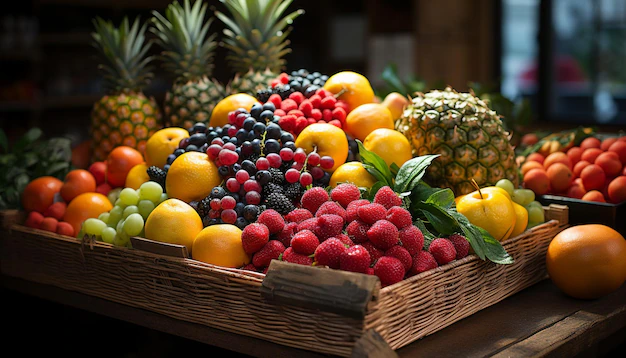
- Eat Sweet Veggies
Certain vegetables can satisfy sweet cravings without the added sugars found in traditional treats.
Sweet potatoes, carrots, and beets are excellent choices that not only provide a hint of sweetness but also offer essential nutrients.
Experiment with roasting or grilling these veggies for a delicious and nutritious alternative to sugary snacks.
These sweet veggies will provide a nice dose of sugar without spiking insulin, which means fewer cravings.

- Avoid late Night Snacking
Late-night snacking is a common culprit for sugar cravings.
Those late-night Gummi bears can be extra sugar that sneaks into the wee hours if you start getting hungry before bed.
If you feel the need for a snack, choose a small, balanced option to avoid overloading on sugars and calories when your body’s activity level is lower.
Establish a cut-off time for eating in the evening to allow your body to digest and metabolize food before bedtime.

- Shop Wisely
Effectively managing sugar cravings starts with your choices at the grocery store because what’s in your fridge is what you’ll end up eating.
Never ever go to the supermarket hungry; grocery stores are probably the worst places to be when you are hungry or have cravings. Only shop when you’ve recently eaten to avoid impulsive choices.
Additionally, planning your meals and snacks in advance can help you make more informed decisions while shopping.

10.Reward Yourself
And last, but not least, Reward yourself.
It’s essential to acknowledge and celebrate your achievements in stopping sugar cravings, whether it’s through a snack or non-food treats such as a relaxing bath, a movie night, or a new book that feels like a reward.
Whatever works best for you, do it. Reward yourself on a daily basis for how hard you’re trying. Creating a positive association with your efforts can reinforce healthy habits and make it easier to resist the temptation of sugary indulgences.

Now Let’s Kick Out Those Sugar Cravings!
Summary
Conquering sugar cravings is a journey that requires a combination of mindful eating, lifestyle adjustments, and a commitment to overall well-being. By incorporating these strategies into your daily routine, you can develop a healthier relationship with food and enjoy the benefits of reduced sugar intake. Remember, small changes over time can lead to lasting results, and with dedication, you can overcome the sweet tooth and embrace a more balanced and satisfying diet.